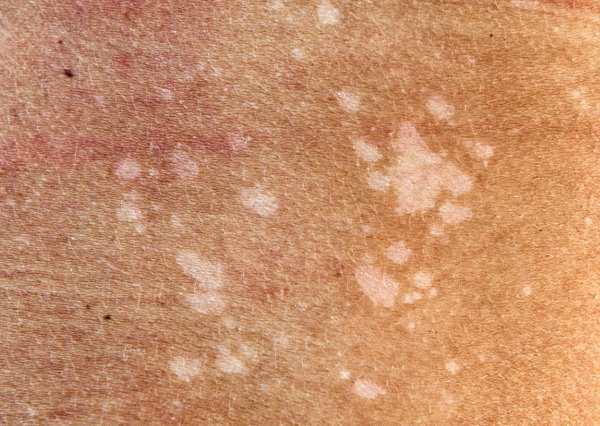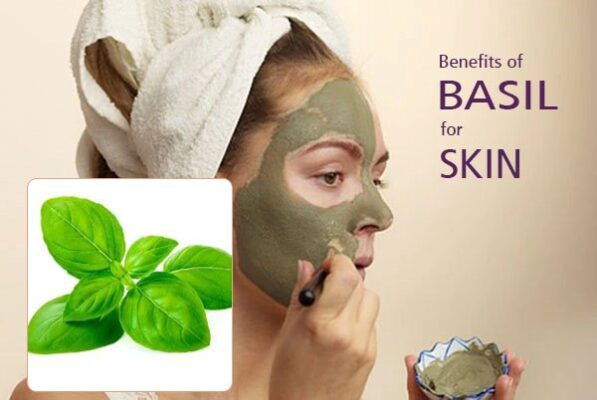Does vitamin deficiency small white spots on skin? Yes, vitamin deficiency may lead to the development of small white spots on the skin. These spots are often referred to as “vitiligo” or “hypopigmentation.” Vitiligo occurs when the cells responsible for producing melanin, the pigment that gives color to the skin, hair, and eyes, are damaged or destroyed. While there can be various causes of vitiligo, including genetic factors and autoimmune conditions, vitamin deficiency is one of the factors that can contribute to its development.
Table of Contents
Which Vitamin Deficiency Causes Small White Spots On Skin?
Two specific vitamins that play a role in maintaining skin health and pigmentation are vitamin B12 and vitamin D.
Vitamin B12 Deficiency:
A deficiency in vitamin B12 can affect the production of healthy skin cells and melanin[Source]. In some cases, it can lead to depigmentation and the appearance of white patches on the skin. If you notice small white spots developing, particularly around the face, neck, and hands, it’s worth considering whether your vitamin B12 levels are adequate.
Vitamin D Deficiency:
Vitamin D is essential for skin health and overall well-being. It helps regulate cell growth and differentiation, including those involved in pigmentation. A deficiency in vitamin D can contribute to skin issues, including vitiligo-like symptoms.
Vitamin C Deficiency:
Vitamin C, also known as ascorbic acid, is essential for maintaining healthy skin and promoting the production of collagen, a protein that plays a crucial role in skin structure. A deficiency in vitamin C can lead to various skin issues, including impaired wound healing, dryness, and even depigmentation. While small white spots might not be a direct result of vitamin C deficiency, the overall health of your skin could be compromised, making it more susceptible to various problems, including pigmentation irregularities.
Vitamin B9 (Folate) Deficiency:
Folate, also known as vitamin B9, is important for cell division and growth, including the growth of skin cells. A deficiency in folate can affect the regeneration of skin cells, potentially leading to issues like depigmentation or white patches. While folate deficiency might not be a primary cause of vitiligo or white spots, it can contribute to skin problems due to its role in maintaining overall skin health.
Other Factors:
It’s important to note that while vitamin deficiency can be a contributing factor to white spots on the skin, there are other potential causes as well. Skin conditions like vitiligo can have multiple triggers, including genetic predisposition, autoimmune responses, and environmental factors.
If you’re concerned about white spots on your skin, it’s recommended to maintaining a balanced diet rich in vitamins and nutrients can help support overall skin health and reduce the risk of such issues.
Treatments For White Spots On The Skin
Here are five treatment options that can be considered for white spots on the skin:
1. Topical Medications:
Certain topical medications, such as corticosteroid creams or ointments, can be prescribed by a dermatologist to help repigment the affected areas. These medications work by suppressing the immune response and promoting the return of pigment to the skin.
2. Phototherapy:
Phototherapy involves exposing the skin to controlled amounts of ultraviolet (UV) light. Narrowband UVB therapy is a common approach for treating vitiligo. The light helps stimulate the production of melanocytes, the cells responsible for producing pigment, and can lead to repigmentation over time.
3. Excimer Laser Therapy:
This targeted laser treatment focuses UVB light on the white patches of skin, encouraging the return of pigment. It’s particularly effective for smaller areas of vitiligo and can lead to noticeable improvement in skin pigmentation.
4. Micropigmentation (Tattooing):
In cases where repigmentation treatments may not be suitable, micropigmentation can be an option. Pigment is implanted into the skin using a tattooing technique, helping to match the color of the surrounding skin and camouflage the white spots.
5. Depigmentation:
In cases where the vitiligo has spread extensively and is affecting a large portion of the skin, depigmentation may be considered. This involves using topical medications to intentionally lighten the remaining pigmented skin, achieving a more uniform appearance.
It’s important to note that the effectiveness of treatments can vary from person to person, and what works best will depend on the individual’s condition, preferences, and medical history. Consulting with a dermatologist or a qualified healthcare professional is crucial to determine the most suitable treatment approach based on the specific characteristics of the white spots and the individual’s overall health. Additionally, maintaining a healthy lifestyle, protecting the skin from excessive sun exposure, and addressing any underlying health issues can also contribute to the success of the chosen treatment.
Take Care Of Your Skin At Home
Improving the appearance of white spots on the skin at home involves a combination of skincare practices and lifestyle adjustments. While it’s important to consult a dermatologist for proper diagnosis and guidance, here are some steps you can consider to help enhance the appearance of white spots on the skin:
Here are the 10 way to Take Care Of Your Skin At Home
1. Protect Yourself from Sun:
Shielding your skin from excessive sun exposure is crucial, as UV rays can further damage the affected areas and hinder repigmentation. Apply a broad-spectrum sunscreen with at least SPF 30 every day, even on cloudy days.
2. Moisturize Regularly:
Keep your skin well-hydrated with a gentle, fragrance-free moisturizer. Hydrated skin is more resilient and less prone to irritation, which can help improve the overall appearance of white spots.
3. Camouflage Makeup:
Using makeup to conceal white spots can help boost your confidence while waiting for treatments to take effect. Choose makeup products that are non-comedogenic and hypoallergenic to avoid exacerbating the condition.
4. Vitamin-Rich Diet:
A diet rich in vitamins and nutrients can support overall skin health. Incorporate foods high in antioxidants, such as fruits, vegetables, and whole grains, to promote skin healing and regeneration.
5. Gentle Exfoliation:
Using a mild exfoliator can help remove dead skin cells and promote a more even skin tone. However, be cautious not to over-exfoliate, as this can worsen irritation.
6. Aloe Vera Gel:
Aloe vera has soothing and healing properties that can help improve the appearance of white spots. Apply pure aloe vera gel to the affected areas and leave it on for 15-20 minutes before rinsing off.
7. Coconut Oil:
Some individuals find that applying coconut oil to white spots can help improve their appearance. Coconut oil has moisturizing properties that may assist in promoting healthier skin.
8. Turmeric Paste:
Turmeric has anti-inflammatory properties and may help in improving skin pigmentation. Mix turmeric powder with yogurt or honey to create a paste, and apply it to the white spots for about 15 minutes before rinsing off.
9. Stay Hydrated:
Drinking plenty of water is essential for maintaining skin hydration and overall health. Hydrated skin is more resilient and can recover better from various skin issues.
10. Manage Stress:
Stress can exacerbate skin conditions. Practicing relaxation techniques like deep breathing, meditation, and yoga can contribute to overall skin well-being.
See also: Benefits of Aloe Vera on Skin Wrinkles Reduction
Remember that individual responses to home remedies can vary, and it’s essential to be patient and consistent with your chosen methods. If you don’t observe significant improvements or if the condition worsens, it’s recommended to seek guidance from a dermatologist. They can provide personalized advice, recommend appropriate treatments, and monitor your progress to ensure the best outcomes for improving the appearance of white spots on your skin.
Consult With Dermatologist For White Spots On The Skin
If you’re experiencing white spots on your skin, it’s advisable to consult with a dermatologist for a proper diagnosis and personalized guidance. While there are various potential causes for white spots, including conditions like vitiligo, it’s important to receive professional evaluation and recommendations. Here’s why consulting a dermatologist is crucial:
Accurate Diagnosis:
Dermatologists are trained to identify and diagnose various skin conditions accurately. They can determine whether the white spots are due to vitiligo, fungal infections, autoimmune disorders, or other underlying causes.
Tailored Treatment:
A dermatologist can recommend appropriate treatment options based on the specific characteristics of your white spots, your medical history, and your individual needs. They can provide personalized solutions that are most likely to yield positive results.
Prevention of Complications:
Some skin conditions, if left untreated, can worsen or lead to complications. Seeking professional help early can help prevent potential complications and manage the condition effectively.
Avoiding Misinformation:
While there are numerous home remedies and over-the-counter products available, not all of them are effective or safe. A dermatologist can provide evidence-based information and steer you away from treatments that may not be beneficial.
Monitoring Progress:
A dermatologist can closely monitor your progress throughout the treatment process, making adjustments as needed. Regular check-ins ensure that the chosen treatment is working effectively and can be modified if necessary.
Peace of Mind:
Consulting a dermatologist offers peace of mind, knowing that you’re receiving expert advice and proper medical care for your skin concern. They can answer your questions and address any concerns you may have.
Professional Expertise:
Dermatologists have extensive knowledge and experience in treating various skin conditions. They can offer insights into the latest treatments, advancements, and techniques in dermatology.
Long-Term Management:
For chronic skin conditions, a dermatologist can provide long-term management strategies to help you maintain skin health and manage any potential flare-ups.
When it comes to your skin health, seeking the guidance of a dermatologist is a wise decision. They can help you understand the root cause of your white spots, recommend appropriate treatments, and guide you toward achieving healthier and more even-toned skin. Remember, your skin deserves the care and attention of a qualified professional to ensure the best possible outcomes.
Conclusion
In conclusion, taking care of your skin is a multifaceted endeavor that requires a combination of proper skincare, a healthy lifestyle, and, when needed, professional guidance. White spots on the skin can arise from a variety of factors, including conditions like vitiligo or deficiencies in essential vitamins. While home remedies and self-care practices can play a role in improving the appearance of white spots, consulting a dermatologist is paramount for accurate diagnosis and tailored treatment options.
The expertise of a dermatologist goes beyond simply addressing the visible symptoms. It involves understanding the underlying causes, considering your individual medical history, and crafting a comprehensive plan that promotes both short-term improvement and long-term skin health. Dermatologists possess the knowledge, experience, and access to cutting-edge treatments that can make a significant difference in managing skin conditions and achieving the desired results.
The journey to healthier and more radiant skin is a collaborative effort between you and your dermatologist. Through accurate diagnosis, evidence-based treatments, and regular monitoring, dermatologists can guide you toward achieving a complexion that reflects your inner well-being. Remember, your skin deserves the attention and care of a trained professional to ensure that you not only address immediate concerns but also lay the foundation for lasting skin vitality.
FAQs
Q: Can Vitamin Deficiency Cause White Patches on the Face?
A: Yes, vitamin deficiency can lead to the formation of white patches on the face. Vitamins play a vital role in maintaining healthy skin, and their deficiency can disrupt various skin functions, including pigmentation. For instance, vitamin deficiencies can affect the production of melanin, the pigment responsible for skin color. This disruption can result in uneven pigmentation, leading to the appearance of white patches, particularly on the face.
Q: Does Vitamin B12 Deficiency Cause Small White Spots on the Skin?
A: Yes, vitamin B12 deficiency can contribute to the development of small white spots on the skin. Vitamin B12 plays a crucial role in the production of healthy skin cells and melanin, the pigment responsible for skin color. When there is a deficiency of vitamin B12, it can affect the normal functioning of skin cells, leading to depigmentation and the appearance of small white spots. These spots can be particularly noticeable on areas of the skin that are frequently exposed to the sun, including the face.
Q: What Vitamin is Good for White Spots?
A: Vitamin B12 is considered beneficial for addressing white spots on the skin. Adequate levels of vitamin B12 are important for maintaining healthy skin and preventing depigmentation. Ensuring sufficient intake of vitamin B12 through diet or supplements can help support skin health and minimize the development of white spots.
Q: Why Do I Have Little White Spots on My Skin?
A: Little white spots on the skin can have various causes, including fungal infections, allergies, or conditions like vitiligo. Vitiligo is a skin disorder characterized by the loss of pigment-producing cells, resulting in white patches. It’s important to consult a dermatologist for proper diagnosis and guidance to determine the specific cause of the white spots on your skin.
Q: Can Lack of Vitamins Cause Vitiligo?
A: While vitamin deficiencies can contribute to skin issues, vitiligo is a complex condition with multiple factors, including genetic predisposition and autoimmune responses. While deficiencies in certain vitamins like B12 can affect skin health, they are not the sole cause of vitiligo. Consultation with a dermatologist can provide a clearer understanding of the condition’s origins.
Q: Can White Spots Be Cured?
A: The management of white spots depends on their underlying cause. Some cases, like those resulting from vitamin deficiencies or minor skin conditions, may improve with appropriate treatment. However, conditions like vitiligo can be more challenging to treat and manage. It’s essential to seek professional advice for a proper diagnosis and tailored treatment plan.
Q: What Foods Reduce White Spots?
A: A balanced diet rich in vitamins and nutrients can support skin health and potentially help reduce the risk of white spots. Foods containing antioxidants, vitamins, and minerals, such as fruits, vegetables, whole grains, and lean proteins, can contribute to overall skin well-being.
Q: Is it Normal to Have White Spots On?
A: Having occasional small white spots on the skin is relatively common and can result from various factors, including minor skin issues or temporary changes in pigmentation. However, if you notice persistent or spreading white spots, it’s advisable to consult a dermatologist for proper evaluation.
Q: Do White Sun Spots Go Away?
A: White sun spots, also known as sunburn spots, can fade over time as the skin undergoes its natural renewal process. Regular use of sunscreen and avoiding excessive sun exposure can prevent the formation of new sun spots and contribute to the improvement of existing ones.
Q: Can Vitamin B12 Deficiency Cause Vitiligo?
A: Vitamin B12 deficiency is not a direct cause of vitiligo, but it can contribute to skin health issues. Vitiligo is a complex condition influenced by genetics and the immune system. While addressing vitamin deficiencies is important for overall skin well-being, other factors play a more significant role in the development of vitiligo.
Remember that obtaining a proper diagnosis from a healthcare professional is essential for understanding the causes of white spots on the skin and determining the appropriate course of action for treatment and management.





One thought on “Does vitamin deficiency makes small white spots on skin?”